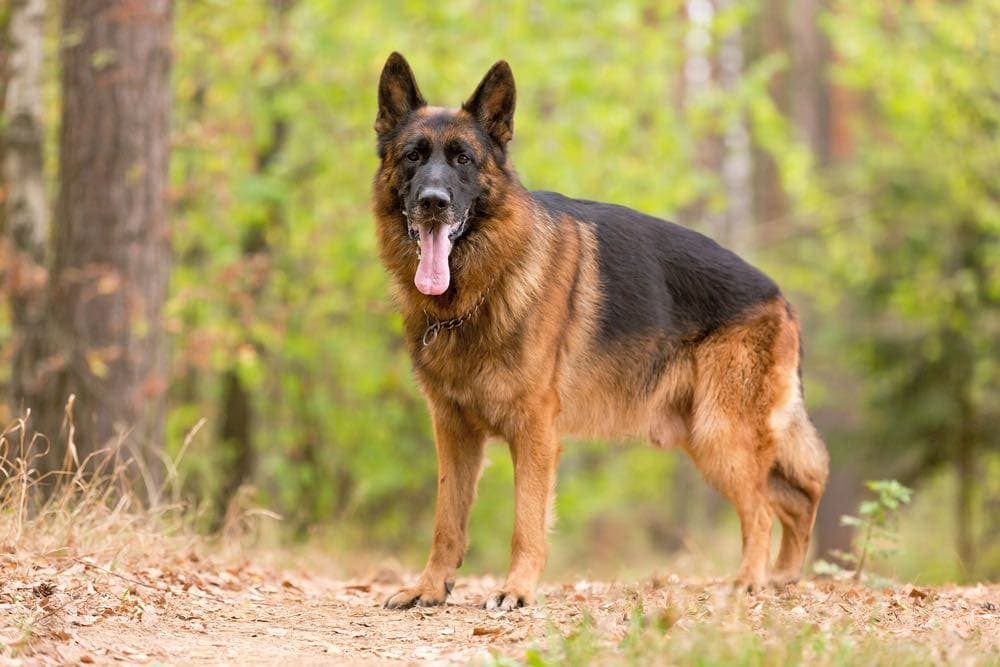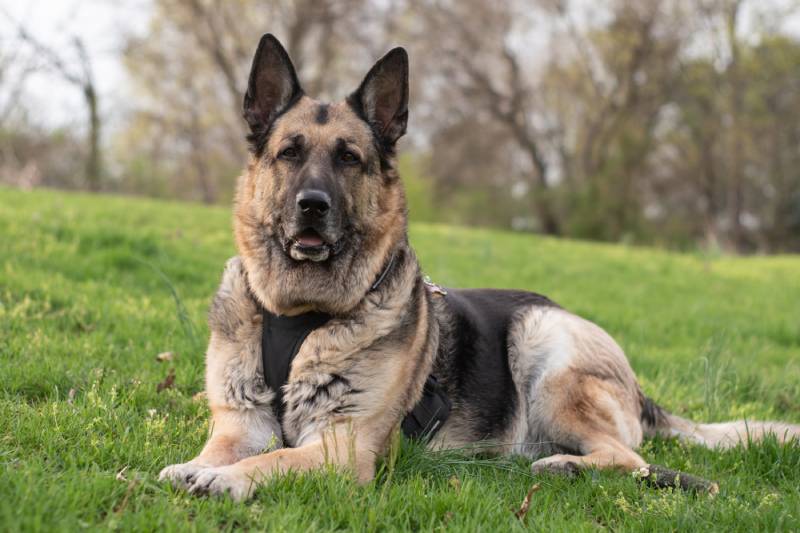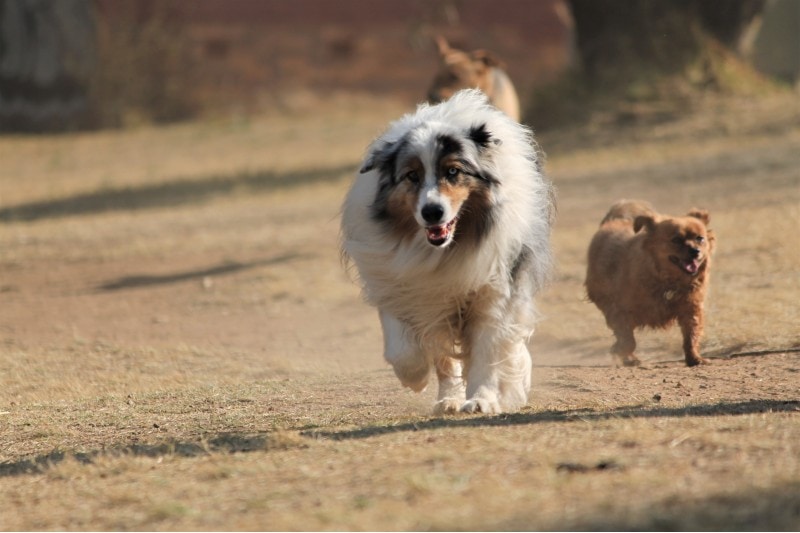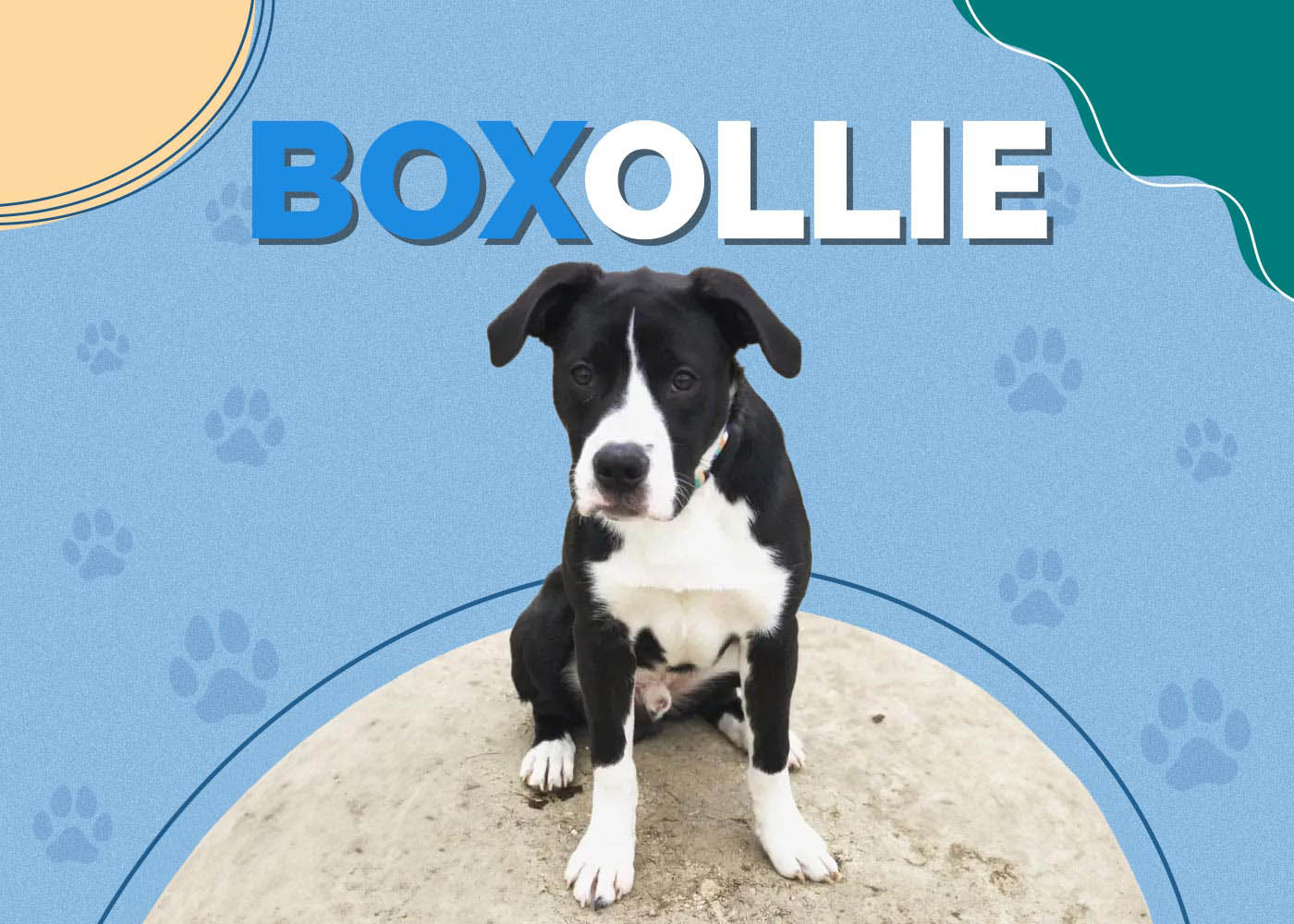How Long Do German Shepherds Live? Average Lifespan, Data & Care Guide
By Brooke Bundy
Updated on

Click to Skip Ahead
As one of the most trained canines for police and military work, it’s generally expected that German Shepherds are healthy dogs with a vigorous spirit. Guarding people and property and shepherding sheep are their realms of expertise, which requires athletic prowess in order to keep sheep with the flock and deal with suspicious persons. The German Shepherd’s strong protective instinct serves them well as a working dog and a pet since they remain fiercely loyal to their people.
While German Shepherds are expected to be a robust breed due to their physically demanding traditional work, their average life span is surprisingly shorter than most dogs. According to the American Kennel Club, the German Shepherd only lives for about 7–10 years on average1. As with all breeds, though, their lifestyle dictates their longevity as much as their genetics.
German Shepherd Average Lifespan
The average life expectancy for a dog hovers between 10 and 13 years. While in nature larger animals tend to live longer than smaller ones, the opposite is true in dogs; smaller breeds tend to live longer than larger breeds. One study has put this down to the accelerated rate of aging in larger dogs2.
Since German Shepherds only live between 7 and 10 years on average, they tend to not live as long as some breeds. However, Shepherds are a common rescue mix and crossbreeds do tend to live longer because of the expanded gene pool. Thus, if you adopted your German Shepherd cross from a shelter or rescue, they might have some lucky genes that can prolong their life expectancy.

How to Care for Your German Shepherd for a Long Lifespan?
Ultimately, the way you treat your German Shepherd will influence their overall health as much as their family history. Some diseases are almost entirely preventable if measures are put in place. In the end, you won’t be able to stop all medical problems from happening. However, there’s a peace that comes from knowing you did everything you possibly could to keep your dog healthy.
Feeding & Diet
Feeding a well-balanced diet that’s appropriate for their age and individual health conditions can really help keep your pet in good shape. Your dog’s diet will likely change as they transition through seasons of life. Some foods are formulated to meet AAFCO standards for all life stages. Otherwise, your German Shepherd will likely transition from puppy food to adult formula to a special food for seniors as they age.
You’ll also want to make sure you’re feeding them the right amount for their body’s condition and life stage. You can expect a German Shepherd to eat between 2.5 and 3.5 cups of dry food per day, but it’ll depend on the dog and the type of food you choose, so make sure you check the feeding guide on your dog food. Talk to your vet if you’re not sure what to look for in a food for your furry friend.
Feeding two smaller meals per day is recommended to reduce the risk of bloat in German Shepherds. If your dog wolfs down their food, look into a slow-feeder to again reduce the risk of bloat.

Environment
Creating a stress-free home for your pet can decrease their risk of developing anxiety. While some dogs are naturally more anxious, good early socialization and positive reinforcement training techniques reduce anxiety and behavioral problems. Mental health for our pets is an underrated but vital topic. A calm pet is a happy pet and studies show that anxiety is correlated with a shorter lifespan. If you are concerned about your pet’s anxiety or behavior, chat to your vet. They may discuss with you environmental changes, training, anxiety remedies or medications to help your pet.
Physical and Mental Exercise
As a high energy breed, German Shepherds should have daily exercise suitable for their age and health. Talk to your vet about how much exercise to give your dog if you are unsure. In addition to physical exercise, provide mental stimulation in the form of training, puzzles or games. A tired pup is less likely to become anxious, bored, or destructive. Be sure to wait at least an hour after a meal before you let them out for a run, however. Heavily exercising right after eating can predispose them to bloat and gastric torsion, which can be fatal.

Grooming
The German Shepherd’s fluffy double coat is a hallmark of the breed. Although they shed year-round, they blow their coats biannually in the spring and fall, so keep the lint roller ready! Brushing their coats with a rake or deshedding tool during shedding season can help control the tufts of fluff. Otherwise, brush them with a slicker brush a few times a week. Bathe your German Shepherd anywhere from weekly to every few months. Trim their claws if they appear to be getting long. While grooming won’t likely improve their lifespan, it will keep them comfortable and clean.
Breeding
German Shepherds may start to hit puberty around 6 to 9 months old, but they take much longer to reach full maturity. While German Shepherds may be capable of mating and having litters around the time they’re 9 months old, it’s recommended to wait until a female is 2 years old before breeding her. Talk to your vet about recommended timing if you intend on spaying or neutering your pet.

Healthcare
German Shepherds are at higher risk of hip dysplasia due to being bred for a particular conformation. Hip dysplasia is a malformation where the head of the femur doesn’t sit well within the hip socket. Breeders often perform hip scoring on their dogs before breeding, to avoid passing on this condition but other factors such as exercise play a part too.
Their large size and deep chest also predisposes them to bloat and GDV, also known as gastric dilatation and volvulus. Bloat occurs when a dog’s stomach rapidly fills with gas after eating. If their stomach twists, as can happen when it is bloated, their organ blood supply is disrupted leading to organ damage and, due to lack of blood returning to the heart, their body goes into shock. This condition can be fatal and requires immediate medical attention. To avoid bloat it is recommended to use slow feeders, feed at least twice a day and avoid vigorous exercise after eating. A surgery called a “gastropexy” can be performed to prevent the stomach from twisting should it fill with gas.
Otherwise, taking your German Shepherd to their annual wellness appointments and visiting the vet when their habits change, or they show signs of illness, can help keep them well.
The Life Stages of a German Shepherd
1. Puppy
German Shepherds are considered puppies from birth until 2 years old. Their first 6 months are prime puppyhood. This is the time they learn to housetrain and exchange their puppy teeth for adult chompers.

2. Adolescence
If you notice your German Shepherd pushing the boundaries around the time they’re 6 months old, buckle up and get ready for adolescence. This period of their life lasts for about 18 months, overlapping with the last chapter of their puppyhood. During adolescence, your German Shepherd will hit their last growth spurts and reach sexual maturity. At some point during this time period, they’ll transition to adult food unless they’re on a formula that’s appropriate for all life stages.
3. Adulthood
They made it. After a couple of years of eating random stuff off the floor and stubbornly holding out through obedience training, your puppy has now reached adulthood. A German Shepherd is considered an adult dog from 2 years old until they attain senior status.

4. Senior
Dogs reach their golden years at different rates depending on size and breed. The last 25% of a dog’s life expectancy is considered their senior years, which means a German Shepherd reaches this mark between the time they’re 6 and 8 years old. As they slow down and start to gray, talk to your vet about when to switch their food to a senior formula and joint care.
How to Tell Your German Shepherd’s Age
If you’ve adopted a rescue, you often don’t know your dog’s age. If a microchip was placed as a puppy, this may reveal a birth date. However, without a microchip, aging dogs become very difficult. They have adult teeth from the age of six months and dental changes such as wear and tear or tartar are influenced by many factors, making it a very approximate way of assessing life stage. If your german shepherd has signs of age such as gray hair or cloudy eyes, they are usually a senior dog.
Conclusion
With appropriate care, you can expect a German Shepherd to live for 7 years or more. While 7–10 years is the breed average, the exact number also depends on a number of factors that aren’t determined by genetics and lifestyle. Keeping up with their medical appointments can also help catch certain diseases early, which leads to a better prognosis for the future.
Related Reads:
Featured Image Credit to Osetrik, Shutterstock












